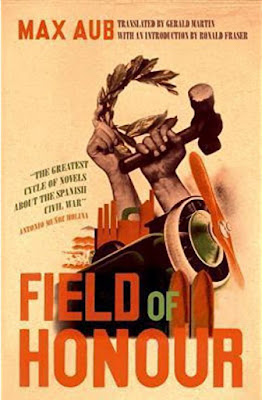The 7th Function of Language
Having written a literary detective novel myself (The Copyart Murder, 2015) I read this second novel by Frenchmen Laurent Binet with a mixture of professional jealousy and studied admiration. To take the first emotion – I wondered whether a book like this, full of quotations about semiotics and the functions of language, would get a look-in in Australia, particularly as it could easily be criticised for various forms of sexism, questionable violence, and literary pretension. My publisher rightly insisted that I seek permission for a number of short quotations I had included in Copyart, from Umberto Eco, Milan Kundera, Italo Calvino and one or two other leading lights I felt necessary to advance the plot. Pages were exchanged with publishers or agents, and in the case of Kundera – I was thrilled to note – with the author himself! How, then, could Binet get away with this? Not only has he included great tracts of work by Foucault, Barthes, Kristeva (to name a few) but he’s included such French theorists as characters, and not kindly. Eco, and perhaps Derida, escape censure but the other European theorists are in the main, vain, self-serving, sexual deviants. Kristeva, for example, is a schemer referred to more than once as a 'bitch'. So, various forms of professional jealousy. How did the author manage to get away with outrageous slander and widespread allusions? And, how he could make something so exciting from Roman Jakobson’s linguistic theory?
The admiration is based on pondering these same questions. Binet makes
use of the detective story, a popular form of writing, and puts it to his own
unique use. That is, The 7thFunction of Language is a
book as much about the power of language, as it is a genre piece (with the typical
increasing set of dangers for the protagonist Simon, a low-grade academic put to
the services of the State; supported by a rough-detective Bayard who seems to lose
rather than gain power as the novel proceeds). The story moves from Paris, to New York, to
Venice, to Naples. We enter the political domain by way of reference to French
politics, 1980 (Mitterrand is about to make another attempt at the Presidency
and conservative forces are gathering to seize the new function of language
that will help sustain their hegemony). There are a few moments of incredible
sex (quite incredible, even for a French novel); there are cuts to the body
that reminded me of that Calvino short story ‘Beheading the Heads’; there are
various murders of the great (intellectuals) and small alike. If the intention
is French satire, then it is damned funny. Perhaps it helps that I might be the
sort of postgraduate reader Binet is writing for, but I felt he did a very good
job in integrating critical theory in a light way that still carried essential
meanings. I have no idea how scholars might react, but as
someone who completed an Honours degree in the 1990s, I liked the playful
interrogation of the French theorists who seemed to take over the study of literature,
transforming it into a cultural and linguistic study, and pushing the writers
themselves off the stage. The novel is thus a great yarn but also a form of
revenge on those who would argue for argument’s sake. No wonder Eco comes off
as a grand master beyond reproach: not only did he try to make sense of the
world in clear language, he wrote one of the best literary detective novels of
all time, in the The Name of the Rose.
No one can come close to that. Perhaps that is why literary crime writers keep
a tongue in their cheeks, and their metafiction ironically self-referential. Or,
perhaps I am just speaking about myself? In this way, I join with the protagonist who understands his own centrality in a decentred universe: 'I am Simon Herzog. I am the hero of my own story' (p.388).




Comments
Post a Comment